BMW X1 VS Toyota RAV4
In the competitive crossover segment, the BMW X1 stands out with its luxurious interior and sporty handling, appealing to drivers seeking a premium experience. In contrast, the Toyota RAV4 excels in practicality and reliability, offering ample cargo space and advanced safety features that cater to families and adventurous types alike. Ultimately, the choice between these two models boils down to personal preferences, with the X1 prioritizing driving dynamics and the RAV4 focusing on functionality and value.
BMW X1
The new BMW X1 effortlessly blends sporty elegance with practical functionality, making it a standout choice in the compact SUV segment. Inside, the sophisticated cabin design is complemented by high-quality materials and cutting-edge technology, creating a welcoming and advanced driving environment. On the road, the vehicle's agile handling and responsive performance promise an engaging driving experience, whether navigating urban streets or embarking on longer journeys.
detailsToyota RAV4
The Toyota RAV4 stands out in the crowded SUV market with its distinct design, embodying a blend of robustness and style. Its cabin provides a harmonious fusion of comfort and practicality, offering plenty of space for both passengers and luggage. This vehicle is engineered to deliver a smooth driving experience, whether manoeuvring through city streets or exploring winding country roads.
detailsWhen it comes to the compact SUV segment, both the BMW X1 and the Toyota RAV4 have carved out their niches, attracting buyers with their unique offerings. In this article, we will delve into a detailed comparison of these two popular models, examining their technical specifications, performance metrics, and innovative features.
Engine Options and Performance
The BMW X1 boasts a diverse range of engines, catering to different preferences and performance needs. With options including petrol, diesel, diesel mild hybrid (MHEV), and even plug-in hybrids, the X1 provides a variety of power outputs ranging from 136 to 326 horsepower. The thrilling acceleration capabilities are notable, as it can go from 0 to 100 km/h in as little as 5.4 seconds for the high-performance variant.
On the other hand, the Toyota RAV4 offers a more streamlined choice of engines, primarily focusing on hybrid technology. RAV4's full-hybrid and plug-in hybrid configurations provide power outputs between 218 and 306 horsepower. The RAV4's performance is commendable, with the quickest variant achieving 0 to 100 km/h in just 6 seconds, making it a sporty contender in its class.
Fuel Efficiency and Emissions
When comparing fuel efficiency, both models have their strengths. The BMW X1 has impressive consumption figures, with the most efficient variant recording numbers as low as 4.6 L/100 km. The plug-in hybrid option offers an electric range of 83 km, providing a sustainable driving option for urban environments.
The RAV4 is also competitive in terms of fuel consumption, particularly with its hybrid configurations that can achieve figures as low as 5.6 L/100 km. Its plug-in hybrid version achieves an exceptional electric range of 75 km, further emphasizing its eco-friendly credentials. Emissions-wise, the RAV4 has a slight edge, with CO2 figures reaching as low as 126 g/km compared to the X1's 120 g/km for some variants.
Interior Space and Comfort
In the realm of interior space, the Toyota RAV4 leads with a trunk capacity of 580 liters, making it an excellent choice for families or anyone requiring ample cargo space. The interior dimensions are well-utilized, providing comfort for five passengers with generous leg and headroom.
The BMW X1, while slightly more compact, still stands out with a trunk capacity of up to 540 liters. Its interior design reflects BMW's commitment to luxury, with high-quality materials and premium finishes that add to the driving experience. Both vehicles comfortably seat five passengers, but the premium feel of the BMW often sways buyers who prioritize luxury alongside practicality.
Technological Innovations
BMW has integrated advanced technology in the X1, featuring the latest iDrive system with a comprehensive infotainment interface that includes navigation, smartphone connectivity, and driver assistance systems. The cabin benefits from high-resolution displays and optional augmented reality features, enhancing the driving experience significantly.
The Toyota RAV4 is well-equipped with its suite of safety and automation technologies, including the Toyota Safety Sense package, which offers adaptive cruise control, lane departure alerts, and automatic emergency braking. The infotainment system is intuitive and straightforward, ensuring a user-friendly experience with essential connectivity options.
Drive and Handling
When it comes to driving dynamics, the BMW X1 delivers a sportier experience, attributed to its precise handling and the availability of all-wheel drive across several variants. It feels more engaged on winding roads and offers an enjoyable ride quality.
Conversely, the RAV4 tends to prioritize comfort over sportiness, providing a smooth ride that is particularly well-suited for family outings and daily commutes. Its all-wheel-drive system enhances its capability in various terrains, making it a versatile option for adventurous drivers.
Conclusion: Which SUV Reigns Supreme?
Both the BMW X1 and the Toyota RAV4 present appealing choices for SUV enthusiasts, but the best option ultimately depends on individual preferences. The BMW X1 excels in luxury, performance, and driving dynamics, making it an ideal choice for those seeking an upscale and thrilling experience. In contrast, the Toyota RAV4 impresses with its practicality, fuel efficiency, and comprehensive safety features, appealing to families and environmentally-conscious buyers.
In the end, whether you favor the sporty allure of the X1 or the family-friendly conveniences of the RAV4, both SUVs promise a rewarding ownership experience that meets the diverse needs of today’s drivers.
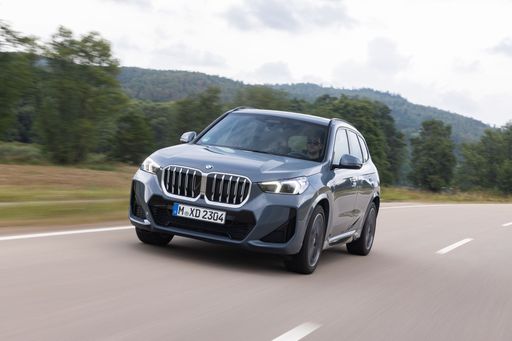 @ press.bmwgroup.com
@ press.bmwgroup.com
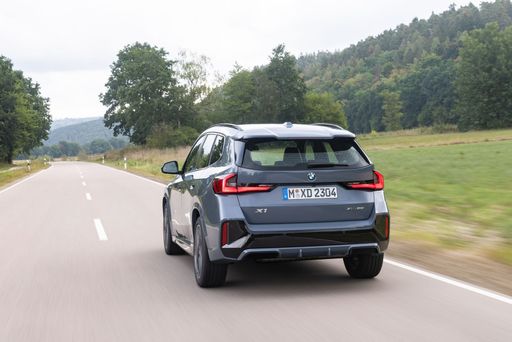 @ press.bmwgroup.com
@ press.bmwgroup.com
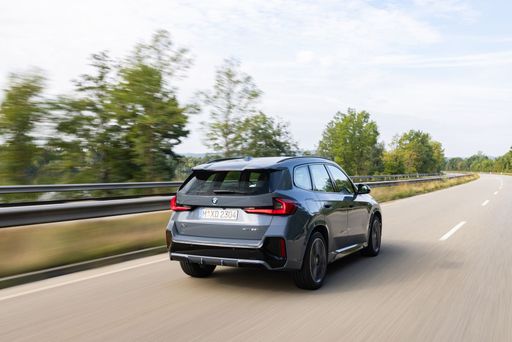 @ press.bmwgroup.com
@ press.bmwgroup.com
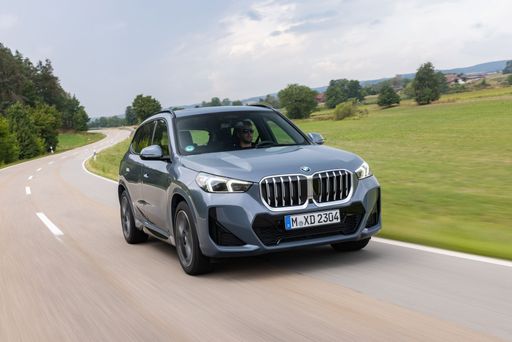 @ press.bmwgroup.com
@ press.bmwgroup.com
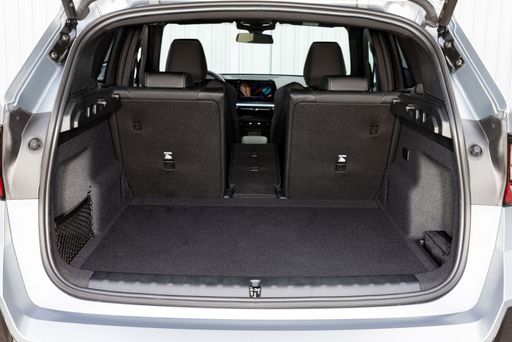 @ press.bmwgroup.com
@ press.bmwgroup.com
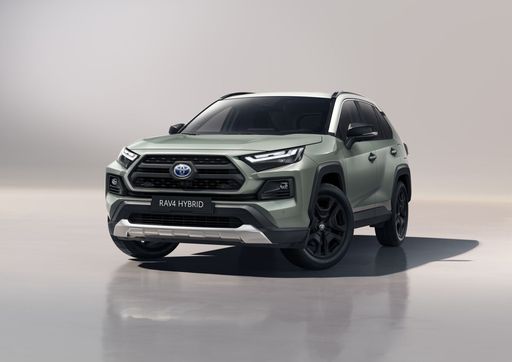 @ Toyota
@ Toyota
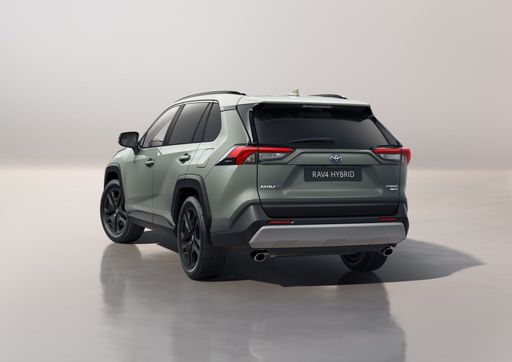 @ Toyota
@ Toyota
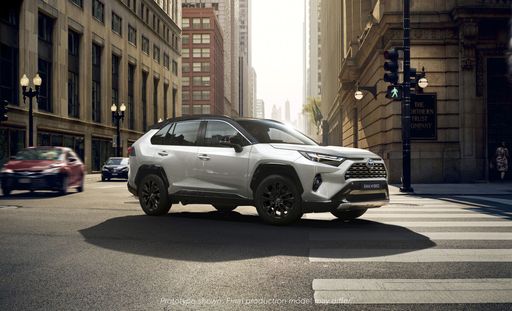 @ Toyota
@ Toyota
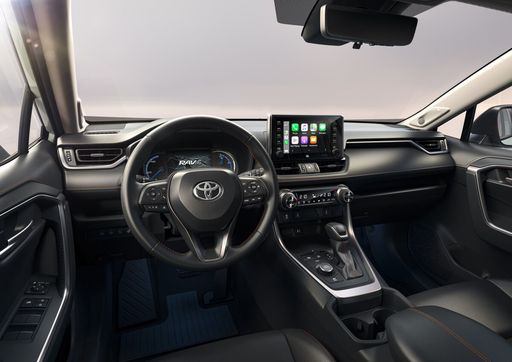 @ Toyota
@ Toyota

|

|
|
|
|
Costs and Consumption |
|
|---|---|
|
Price
about 37600 - 54800
£
|
Price
about 35100 - 50300
£
|
|
Consumption L/100km
0.8 - 7.7
L
|
Consumption L/100km
1 - 5.6
L
|
|
Consumption kWh/100km
-
|
Consumption kWh/100km
-
|
|
Electric Range
83
km
|
Electric Range
75
km
|
|
Battery Capacity
14.2
kWh
|
Battery Capacity
-
|
|
co2
17 - 175
g/km
|
co2
22 - 128
g/km
|
|
Fuel tank capacity
47 - 54
L
|
Fuel tank capacity
55
L
|
Dimensions and Body |
|
|
Body Type
SUV
|
Body Type
SUV
|
|
Seats
5
|
Seats
5
|
|
Doors
5
|
Doors
5
|
|
Curb weight
1575 - 1935
kg
|
Curb weight
1745 - 1910
kg
|
|
Trunk capacity
490 - 540
L
|
Trunk capacity
520 - 580
L
|
|
Length
4500 - 4505
mm
|
Length
4600
mm
|
|
Width
1845
mm
|
Width
1855
mm
|
|
Height
1622 - 1642
mm
|
Height
1685
mm
|
|
Payload
490 - 500
kg
|
Payload
390 - 600
kg
|
Engine and Performance |
|
|
Engine Type
Diesel, Petrol, Diesel MHEV, Petrol MHEV, Plugin Hybrid
|
Engine Type
Full Hybrid, Plugin Hybrid
|
|
Transmission
Automatic
|
Transmission
Automatic
|
|
Transmission Detail
Automat. Schaltgetriebe (Doppelkupplung)
|
Transmission Detail
CVT
|
|
Drive Type
Front-Wheel Drive, All-Wheel Drive
|
Drive Type
Front-Wheel Drive, All-Wheel Drive
|
|
Power HP
136 - 326
HP
|
Power HP
218 - 306
HP
|
|
Acceleration 0-100km/h
5.4 - 9.2
s
|
Acceleration 0-100km/h
6 - 8.4
s
|
|
Max Speed
190 - 250
km/h
|
Max Speed
180
km/h
|
|
Torque
230 - 477
Nm
|
Torque
-
|
|
Number of Cylinders
3 - 4
|
Number of Cylinders
4
|
|
Power kW
100 - 240
kW
|
Power kW
160 - 225
kW
|
|
Engine capacity
1499 - 1998
cm3
|
Engine capacity
2487
cm3
|
|
Top speed
190 - 250
km/h
|
Top speed
180
km/h
|
General |
|
|
Model Year
2023 - 2024
|
Model Year
2020 - 2024
|
|
CO2 Efficiency Class
D, E, B, F
|
CO2 Efficiency Class
D, B
|
|
Brand
BMW
|
Brand
Toyota
|
BMW X1
The New BMW X1: A Fusion of Innovation and Performance
For those in search of a luxury SUV that masterfully combines technical innovation with driving pleasure, the BMW X1 stands as a paragon of design and engineering excellence. As part of the competitive compact SUV segment, the BMW X1 offers a robust array of features targeted towards both the tech-savvy and the driving enthusiast.
Advanced Engine Options
The BMW X1 delivers a versatile range of powertrains to suit the specific needs of different drivers. From the efficient diesel engines to cutting-edge plug-in hybrid variants, there’s a model for every preference. The diesel variants, including mild-hybrids, provide a balance between fuel efficiency and power delivery. Petrol engines, on the other hand, offer spirited performance with a more traditional feel.
Efficiency Meets Performance
The BMW X1's remarkable range of power, from 136 PS to an impressive 326 PS, caters to diverse driving needs. Models fitted with mild-hybrid technology afford drivers reduced fuel consumption and emissions, with the plug-in hybrid leading the field in eco-efficiency with consumption figures as low as 0.8 L/100km and an electric range of up to 83 km.
Technological Innovation
Stepping inside the BMW X1, drivers are greeted with an intuitive cockpit, seamlessly integrating the latest BMW technology. An advanced infotainment system offers connectivity at the touch of a button, while an array of driver assistance systems ensure that safety and convenience are at the forefront.
Design and Comfort
The BMW X1 exudes a powerful presence on the road with its refined SUV aesthetics. Offering substantial interior space, it comfortably accommodates up to five passengers with ample boot capacity ranging from 490 to 540 litres. BMW also offers various trim levels, including the luxurious M Sport package, that enhance both the aesthetic and dynamic appeal.
Dynamic Driving Experience
BMW enthusiasts will appreciate the dynamic handling characteristics synonymous with the brand. Whether it's the front-wheel drive or the xDrive all-wheel system, the BMW X1 delivers responsive handling and a smooth driving experience, making it ideal for both urban and motorway driving scenarios.
Conclusion
The BMW X1 raises the bar for compact SUVs, offering a harmonious blend of innovation, efficiency, and driving pleasure. For those seeking a vehicle that stands out both in terms of aesthetics and technology, the X1 is undoubtedly a worthy contender.
Toyota RAV4
The Toyota RAV4: A Modern Marvel in the SUV Segment
The Toyota RAV4 has long been a staple in the SUV market, renowned for its reliable performance and innovative design. In the latest iterations, Toyota continues to build on this legacy by integrating advanced technology and superior engineering.
Hybrid Excellence: Under the Hood
The latest RAV4 models are equipped with impressive hybrid engines, offering both full-hybrid and plug-in hybrid options. The performance spectrum ranges from 218 to a staggering 306 PS, providing power without compromising efficiency. These engines are paired with a responsive CVT automatic transmission, delivering a smooth driving experience.
The hybrid variants achieve remarkable fuel efficiency, with consumption rates as low as 1.0 to 5.6 litres per 100 kilometres, depending on the model. Additionally, the plug-in hybrid versions boast an impressive electric-only range of up to 75 kilometres.
Performance Meets Practicality
The Toyota RAV4 is not just about power; it also offers practical features that enhance the driving experience. With a top speed of up to 180 km/h and a rapid acceleration capability of 0-100 km/h in just 6 to 8.4 seconds, it combines the thrill of driving with everyday usability.
The spacious interior comfortably seats five, with a generous boot capacity ranging from 520 to 580 litres, making it ideal for family adventures or long road trips.
Innovative Driving Dynamics
One of the RAV4's standout features is its driving dynamics. Available in both front-wheel and all-wheel drive, the all-wheel drive variants, branded as AWD-i, offer enhanced traction and stability, providing peace of mind in various driving conditions.
Furthermore, Toyota has ensured that the RAV4 caters to diverse tastes and preferences, with several trim levels like the Adventure AWD-i, Business Edition, and the sporty GR SPORT AWD-i, offering unique features and styling options.
Eco-Friendly and Cost Effective
Environmental considerations are central to the RAV4 design philosophy. The model range adheres to strict CO2 emission standards, rated between 22 and 128 g/km, placing it in the B to D CO2 efficiency classes.
Moreover, the running costs of the RAV4 reflect its excellent efficiency, with monthly expenses ranging from €1,068 to €1,315, and cost per kilometre between 42.7 and 52.6 cents, making it a sensible choice for eco-conscious drivers.
Conclusion: The RAV4's Unmatched Appeal
Whether you're a city driver or an adventure seeker, the Toyota RAV4 offers a perfect blend of power, efficiency, and practicality. Its state-of-the-art hybrid technology, coupled with its versatile features, truly sets it apart in the competitive SUV market. With the Toyota RAV4, drivers experience the best of both worlds: exceptional performance and eco-friendly innovation.
